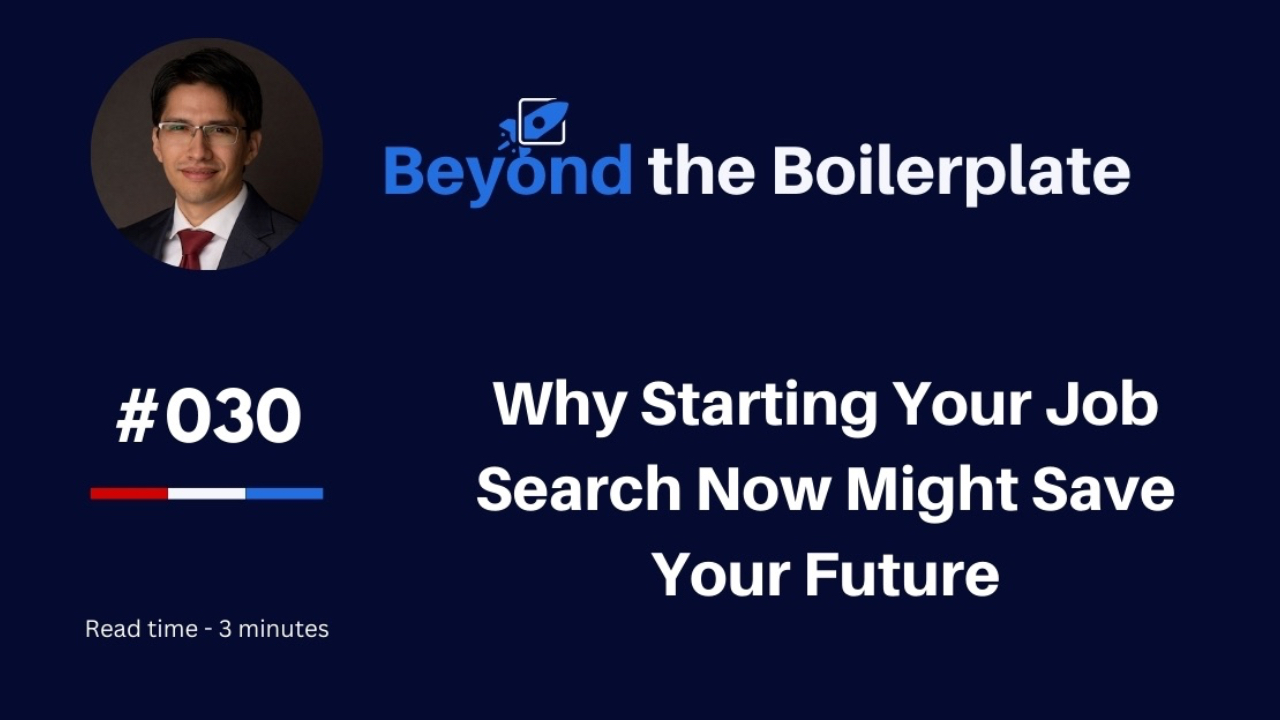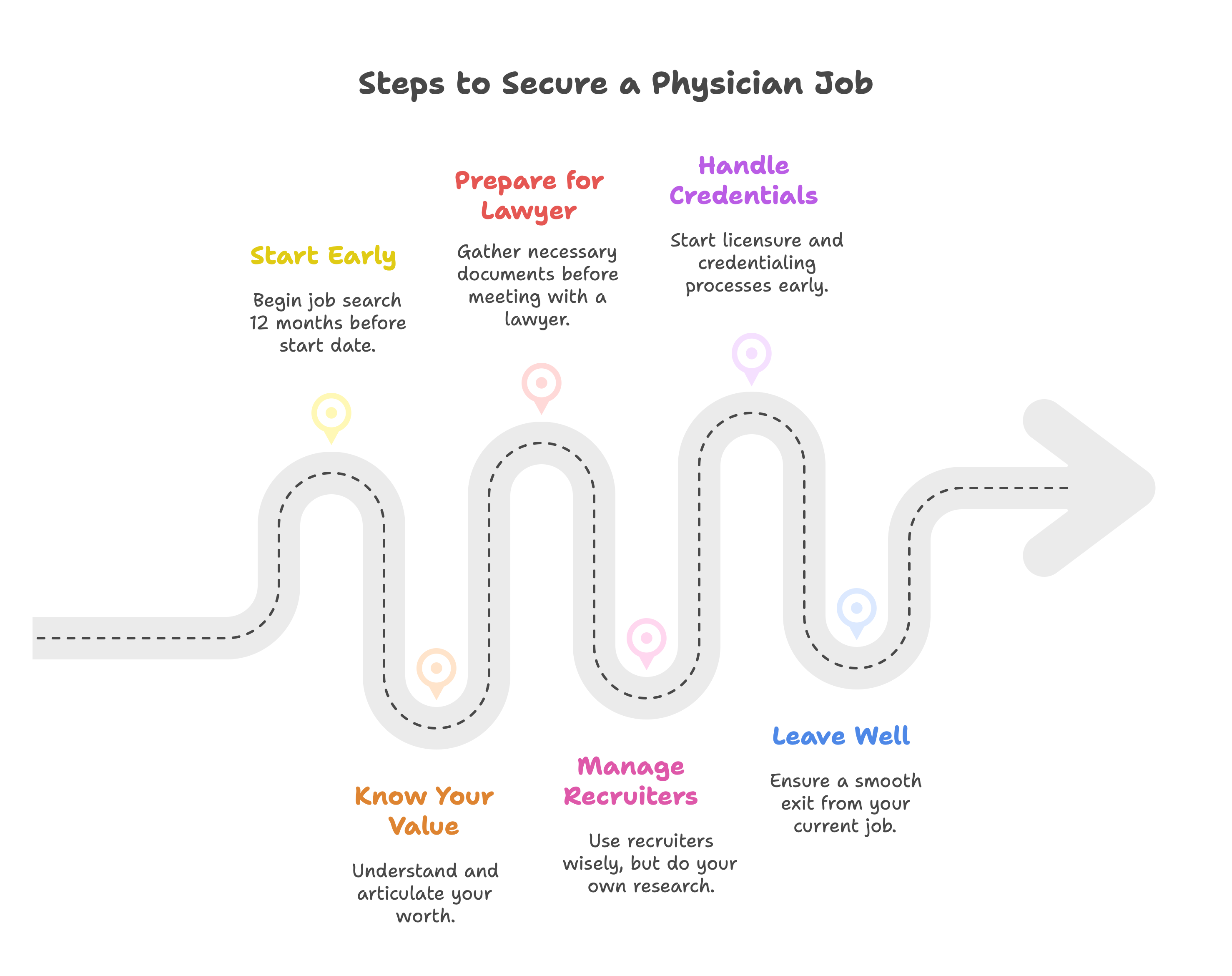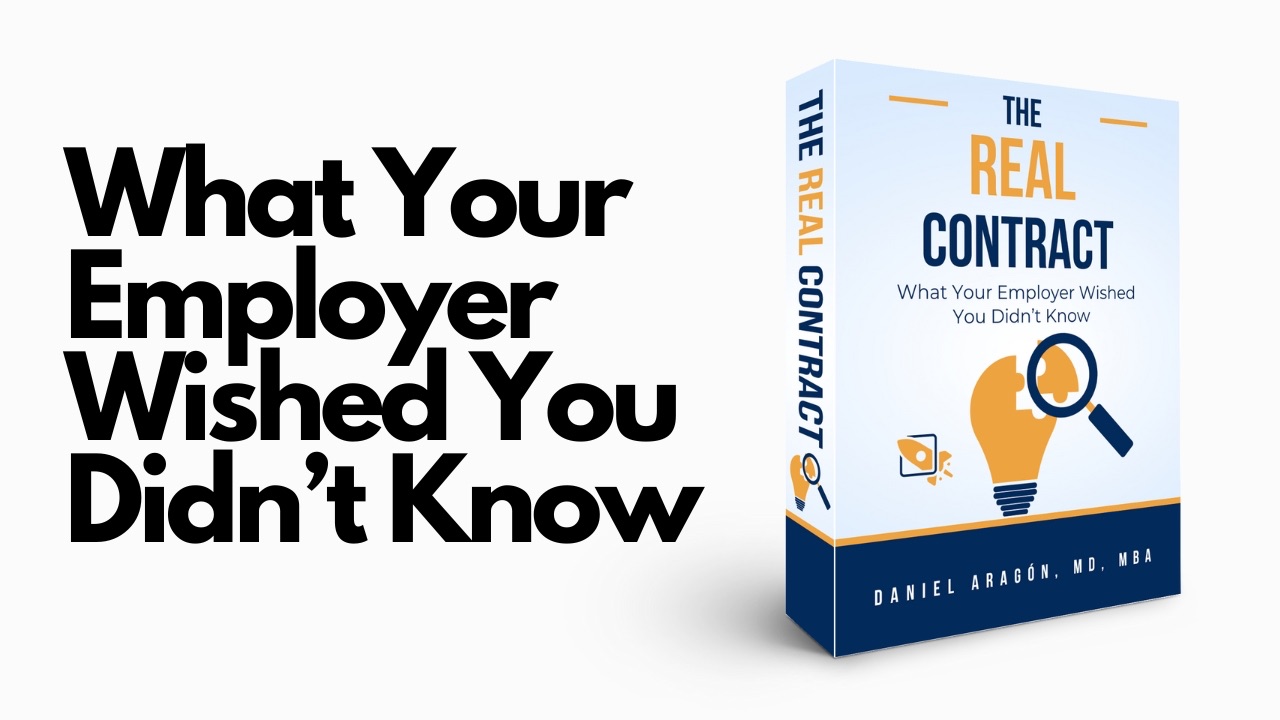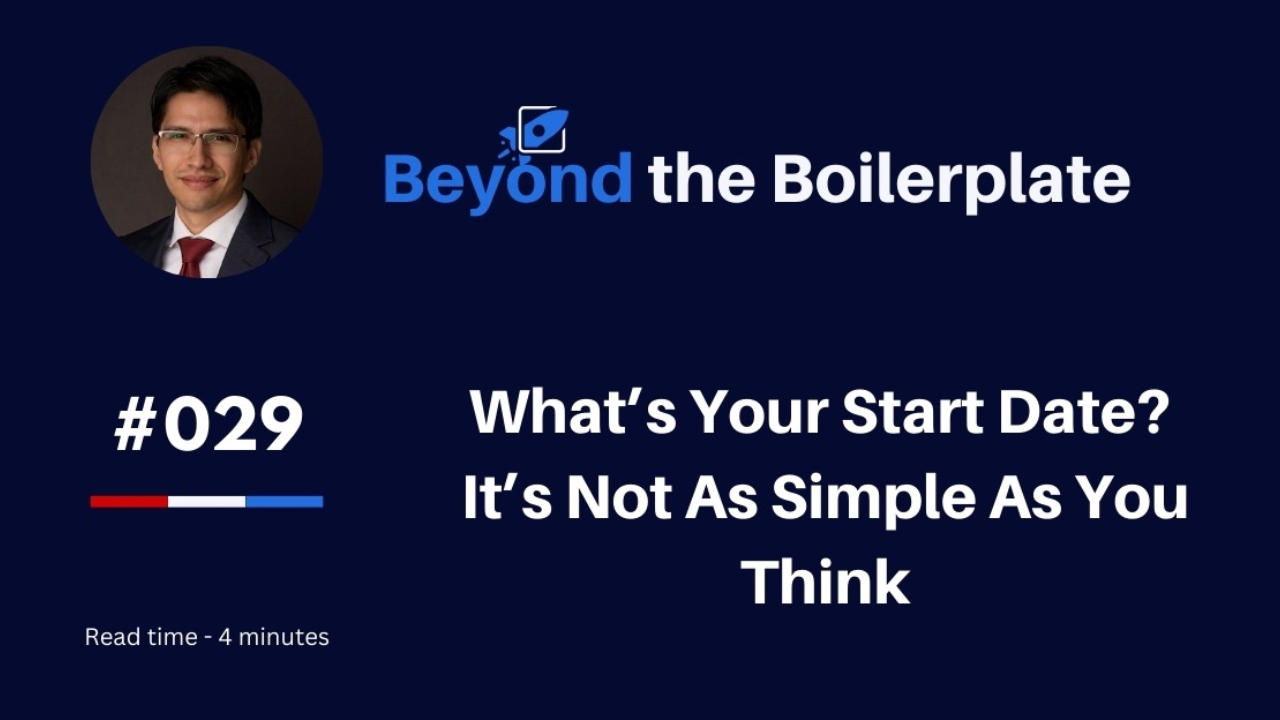
"12 Months Too Early?": Why Starting Your Job Search Now Might Save Your Future
🧾 Key Takeaways for Physicians
-
Start your job hunt at least 12 months before your start date. Seriously. Anything less is playing defense.
-
Know your value. And know how to prove it on paper and in conversation.
-
Licensure and hospital credentialing take forever. Like, forever-forever.
-
Prepare before you meet your contract lawyer. Otherwise you’ll burn time (and money).
-
Don't rely on recruiters to do your homework. They don't work for you.
-
Leave your current job well. No one forgets a messy exit.
Why Do Physicians Need to Start the Job Search a Year Out?
You ever try to find a new place to live, pack, and move... all in two weeks? It’s chaos. Now imagine doing that plus trying to decode a 16-page contract, chase down references, and apply for a state medical license. And... still seeing patients every day?
Starting your job hunt 12 months out buys you space to:
-
Figure out what you want (Not just “I’ll take anything not toxic.”)
-
Get licensed in the state you actually want to work in
-
Fix anything messy on your CV
-
Build real relationships with mentors and references
-
Negotiate properly without having to say, “Can I get back to you next week?”
If you’re 6 months from graduation and haven’t started? You’re already behind. Not ruined. But definitely behind.
This isn't just some general career advice. It's backed by thousands of stories from physicians who either locked in great offers—or scrambled and settled. Want real strategy? Check out What To Do Before You Get Your Physician Contract.
What Should I Be Doing First Month of My Job Search?
So it’s month 1. You’ve committed to getting serious. Where do you start?
You don’t need a recruiter yet. You don’t need to apply to 60 jobs. You need clarity.
Your first 30 days should include:
-
Listing your top 3 geographic areas
-
Getting familiar with licensing timelines for those states
-
Reading solid articles or books on physician contracts. Subscribe to this newsletter.
-
Updating your CV
-
Talking to 2 attendings or recent grads about how they found their job
-
Starting a doc (yes, an actual document) that tracks:
-
Licensure timelines
-
Recruiter contacts
-
Hospital credentialing steps
-
Notes from calls/emails
-
Contract red flag examples
-
Questions you want to ask your future lawyer
-
This is the scaffolding you’ll use to not just find “a” job, but the right job.
And if you're unsure what “right” actually means for you? Use this guide on How to Choose the Right Physician Job Without Regretting It Later.
Is Your CV Helping You or Hurting You?
Be honest. When was the last time you touched your CV? MS4?
What makes a CV bad for physician job hunting?
-
It lists every tiny clinical task but no outcomes
-
It uses med school buzzwords that sound impressive but say nothing
-
It hasn’t been updated since before you learned how to place orders in Epic
You want clean, tight formatting. Reverse chronological. Clear bullets. No walls of text. Make it easy for someone to glance and say: yes.
Bonus tip:
Send your CV as a PDF not a Word doc. Yes, really.
And a cover letter? It won’t save a weak CV, but a strong one paired with a tailored cover letter makes a serious first impression. Want examples? Grab them here.
Do You Actually Know What You’re Worth?
Here’s a fun exercise: ask 3 residents in your specialty how much they think they should make in their first job. You’ll get 3 wildly different answers - and none of them will be backed by data.
You can’t negotiate what you don’t understand.
Start with:
-
MGMA data (ask your program if they have access)
Learn the basics:
-
How RVUs work
-
What base + bonus models look like
-
What tail insurance should cost (if they make you pay it, you better ask for more)
Are You Hurting Your Candidacy Without Knowing It?
Let’s talk about those small things that seem harmless... until they show up in a reference call.
Here’s what to fix now, not later:
-
Chronic lateness
-
Weak notes
-
Mediocre productivity
-
Being “not super engaged” in clinic
-
Not showing up to conference (because of... sandwiches?)
These all show up in reference calls. Even if no one says it to your face.
And guess what? The hiring group is gonna call your current job whether you list them or not. So do your work well. Leave well. Don’t burn bridges just because you’re clocking out soon.
How Do You Make Yourself a Stronger Candidate?
Let’s say your board scores are fine. You’ve done well but not spectacular. Can you still stand out?
Yep. And here's how:
-
Write a short op-ed or clinical piece and get it published
-
Do an extra certification on your vacation
-
Give a talk to med students and add it to your CV
-
Start a relationship now with someone you want as a reference later
Remember: you don’t have to be perfect. You just have to be memorable and growing.
Should You Work With a Recruiter?
Maybe. But know what they are - and what they aren’t.
Recruiters can:
-
Save you time
-
Show you options you didn’t know existed
-
Help speed up an interview
Recruiters can’t:
-
Read the contract for you
-
Guarantee you’re not being underpaid
-
Care about your long-term happiness
You can use them. Just don’t depend on them.
Are You Even Ready to Negotiate Your First Contract?
Once you get the offer, you’ve got one shot to negotiate well. Mess it up, and you’re stuck with a bad deal for years.
Here’s the biggest mistake: showing up to your lawyer totally unprepared.
You should already know the basics of what you’re looking at - before your lawyer gets involved.
That’s where The Real Contract Course comes in.
The Real Contract Course: Your Pre-Lawyer Prep That Saves Time, Money & Regret
This 2-hour video course is built for residents and fellows. No filler. No corporate buzzwords. Just:
-
What non-competes mean (and how to push back)
-
What tail coverage is (and who should pay it)
-
How to recognize trash bonus structures
-
How to ask for more without blowing the offer
-
How to walk into your attorney meeting focused and ready
Why it works:
-
You don’t waste your limited lawyer time learning the basics
-
You go into negotiation prepared, not panicked
-
You can actually negotiate instead of just signing and praying
You trained for over a decade. Don't let a rushed job search or clueless negotiation tank your first attending job.






